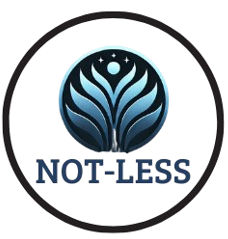As someone who identifies as a “non-bio mom,” I’ve always felt a tension around the term “childless.” The word is loaded, suggesting that a woman without biological children is somehow incomplete. But here’s the thing: not all of us are “less” because we don’t fit a specific mold. Kamala Harris, with her unique family as a stepmother, or “Momala” as she’s known to her stepchildren, embodies this beautifully. Yet, during her recent presidential campaign, how often did the public fixate on the idea that she’s “childless”? It’s a label that doesn’t just miss the mark—it reinforces an outdated standard.
The way we talk about women in power still reflects society’s old biases. For those of us who are child-free by circumstance, by choice, or through the paths life has taken us, the term “childless” does more harm than we often realize. Why can’t we shift the conversation toward something more accurate, like “non-bio mom,” or simply leave behind the qualifiers altogether? After all, being a strong, compassionate leader doesn’t require motherhood as proof.
When it comes to women in leadership, particularly in high-stakes roles like the presidency, society still imposes expectations rooted in outdated ideals of femininity. For Harris, the label of “childless” may have subtly influenced how voters perceived her ability to connect with “family values.” Some might unconsciously believe that a woman with children has a special insight or empathy—qualities that are arbitrarily linked to motherhood. Could this unspoken bias have swayed undecided voters or even dampened enthusiasm among certain groups?
As voters, we often look for leaders who we feel “understand” us, especially when it comes to issues like family, stability, and community. But what if we could expand our view to embrace diverse family dynamics and see beyond rigid expectations of what a female leader “should” look like? Harris’s loss raises important questions about how far we’ve come—and how far we still have to go—in recognizing the full spectrum of women’s experiences without filtering them through a narrow, conventional lens.
So, here’s the question: Do you think the labels we use, like “childless,” still influence how society views women in power? And if so, how can we start moving toward a language that genuinely reflects who we are? I’d love to hear your thoughts on how we can evolve this conversation for the better.


What you’re creating here is a true oasis of knowledge and inspiration! Every sentence is like a precious pearl, and together they form a fascinating necklace of wisdom. The only thing I found missing was slightly more detailed examples – that would have made it absolutely perfect!
Thank you so much for your thoughtful words! Your metaphor of a necklace of wisdom truly touched me. I hear you about wanting more examples—that’s such a helpful suggestion and I’ll definitely weave in more details and real-life stories in the next pieces I create. I’m grateful you’re here.